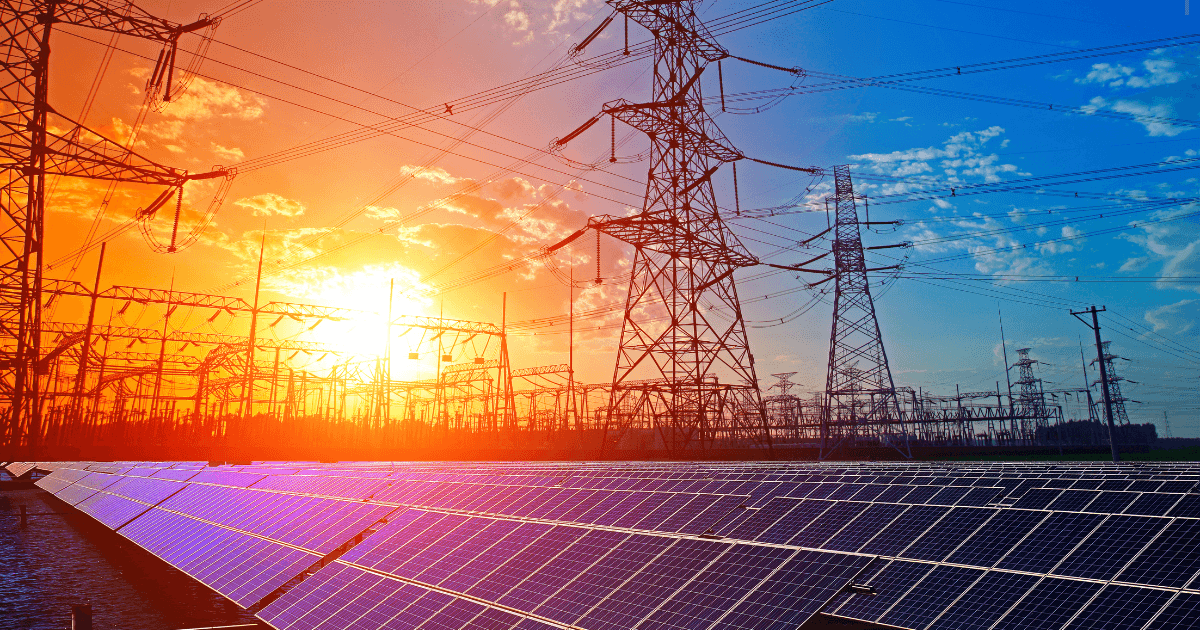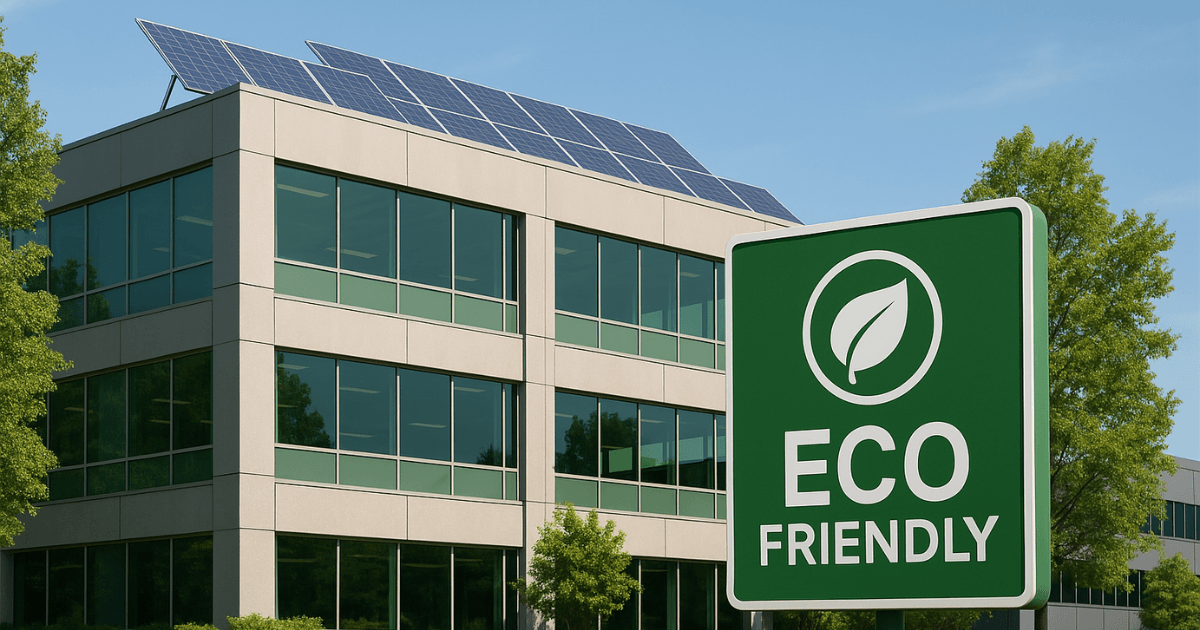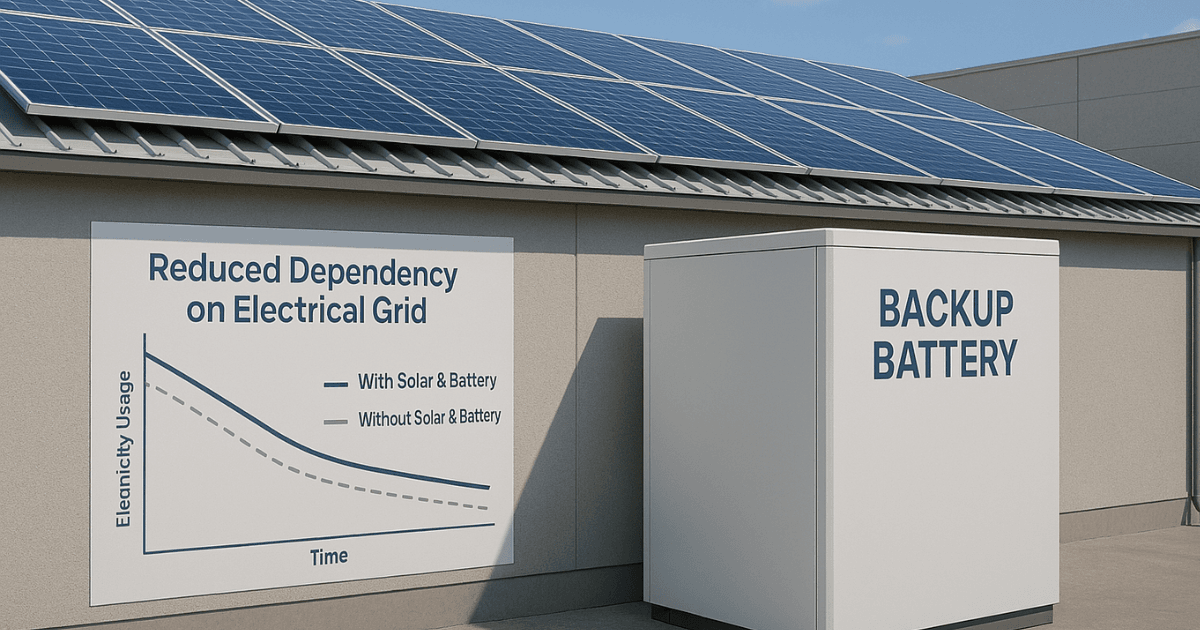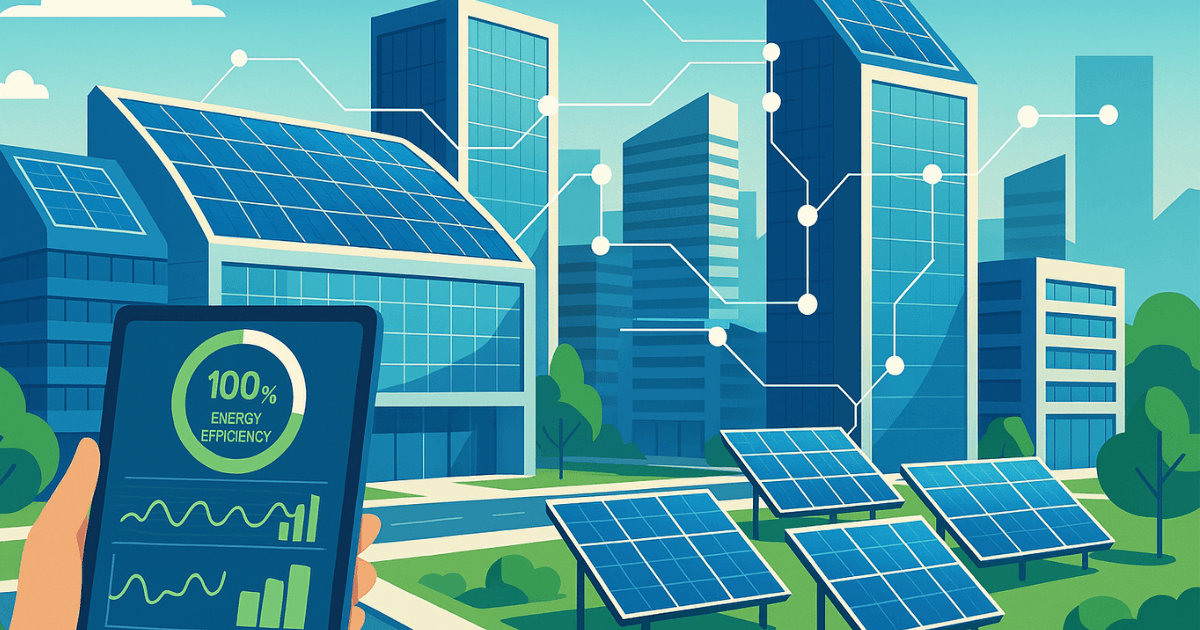
How Solar Power Can Transform Your Business
As energy costs continue to rise, businesses are looking for sustainable solutions which can transform the business to cut expenses and reduce their environmental impact. Solar power has emerged as a crucial, offering long-term savings and energy independence. By harnessing the sun’s power, companies can stabilize electricity costs and improve profitability.
Solar energy pole vaults an amiss notion of cost savings against future-proofing a business. With global sustainability goals piling up, solar energy powers a business towards cord brand integrity and attracts environmentally conscious consumers. There are also government-run incentives, making solar even cheaper and an excellent investment on top of other future returns one can look forward to.
Understanding why businesses should invest in solar energy will help retrieve the enormous amounts of financial and ecological benefits it has.
Why Should Businesses Invest in Solar Energy?
Businesses today need cost-effective and sustainable energy solutions to stay competitive. Solar energy significantly reduces electricity bills, helping companies save thousands annually. By generating power onsite, businesses can cut dependence on traditional energy sources and avoid fluctuating utility costs, ensuring long-term financial stability.
Beyond cost savings, solar power strengthens corporate social responsibility (CSR). Customers and investors prefer eco-conscious businesses that prioritize sustainability. Transforming into solar power to mitigate carbon emissions apart from boosting brand recognition. There are also federal tax incentives and other perks for the adoption of solar power, making it a sound financial decision.

Now that you understand why solar energy is a strategic investment, let’s explore how much your business can actually save by making the switch.
How Much Can a Business Save by Switching to Solar?
The financial benefits of solar power are undeniable. Businesses can reduce electricity expenses by up to 70%, depending on energy usage and panel efficiency. With net metering, excess energy can be sent back to the grid, further lowering costs and even generating revenue over time.
The return on investment (ROI) for solar panels is impressive. Most businesses recover their initial investment within 3–5 years, and since solar panels last over 25 years, the long-term savings are substantial.

Beyond financial savings, solar energy plays a crucial role in building a sustainable future. Let’s explore how it enhances business sustainability.
How Does Solar Energy Improve Business Sustainability?
Having turned toward clean energy, the corporate world bears the responsibility of ensuring that their business practices are in harmony with global ecological standards. By harnessing solar energy, corporations minimize their carbon footprint in a major way by having lower greenhouse gas emissions that contribute to climate change.
Beyond environmental impact, solar-powered businesses attract eco-conscious customers and investors. Sustainability-driven brands gain a competitive edge, strengthening their reputation and market positioning. Additionally, solar energy ensures energy security, protecting businesses from power shortages and rising electricity costs.

Sustainability isn’t the only benefit—solar energy can also increase your business property’s value. Let’s explore how.
Can Solar Panels Increase Business Property Value?
Installation of solar units goes way beyond electricity cost savings; it is a smart investment that serves to lift property value. Commercial properties that come with solar installations become easy sell-offs for buyers and tenants with the benefits of low operating costs and long-term energy savings into consideration.
Such a solar-powered building speaks of sustainability and innovation, driving its market demand. Additionally, businesses that invest in solar enjoy an increased resale value since energy-efficient properties have a very high demand. Thus, with the soaring energy prices, time will tell that those properties with in-built solar solutions will only appreciate.

Choosing the right type of solar panels is crucial to maximizing efficiency and savings. Let’s explore the best solar panel options for businesses.
What Are the Best Types of Solar Panels for Businesses?
Selecting the right solar panels is essential for maximizing efficiency and savings. Monocrystalline panels offer the highest efficiency and durability, making them ideal for businesses with high energy demands.
Polycrystalline panels can be a great cost-effective alternative whereas thin-film panels are good for large surfaces that have flexible mounting options. Parameters like energy requirement, roof area, and budget will determine the panel type chosen.
High-quality solar technology is a worthy investment for performance and returns over time. Partnering with an expert provider guarantees proper installation and maintenance, optimizing solar output for your business.

Choosing the right panels is just the beginning—finding a reliable solar provider ensures a seamless transition to renewable energy. Let’s explore how to make the best choice.
How to Choose the Right Solar Energy Provider for Your Business?
Selecting the right solar provider is crucial for maximizing efficiency and long-term savings. Look for a company with proven experience, quality installations, and strong customer support. Ensure they offer warranties, maintenance services, and transparent pricing to avoid hidden costs.
A good provider will assess your energy needs, recommend the best solar solutions, and handle the entire installation process seamlessly. Poornta X Renewable provides the best solar panel installation service, ensuring high-quality solutions tailored to your business needs, maximizing energy savings and sustainability.

Once you choose the right provider, it’s time to explore the government incentives available for businesses investing in solar power.
Are There Any Government Incentives for Businesses Going Solar?
Governments worldwide offer financial incentives to encourage businesses to switch to solar energy. Tax credits, rebates, and subsidies partially offset the initial investment cost, creating reduced costs for solar investments. Accelerated depreciation and net metering schemes in India enable the enterprise faster recovery of costs with energy savings.
Incentives and renewable energy policies granted at the state level further promote the adoption of solar energy, which ensures maximum returns to the business.
By leveraging these government benefits, companies can achieve energy independence with minimal financial strain, making solar an even smarter investment.
 Beyond incentives, solar energy provides businesses with long-term energy security and independence. Let’s explore how it ensures uninterrupted power supply.
Beyond incentives, solar energy provides businesses with long-term energy security and independence. Let’s explore how it ensures uninterrupted power supply.
How Does Solar Energy Ensure Energy Independence for Businesses?
Relying on the grid for electricity exposes businesses to fluctuating energy prices and unexpected power outages. Solar energy ensures a stable and independent source of energy, thereby reducing their reliance on the utility company and protecting the businesses from the shockingly high monthly power bills.
With battery storage solutions, businesses can store excess solar energy for use during peak hours or power cuts. Full systems and energy security stay uninterrupted, while downtime simply means revenue loss for the business. Solar energy provides a complete solution, allowing businesses to regain control over the purchase or consumption and expenses involved.

While solar energy offers independence, businesses must also be aware of the challenges they may face during installation. Let’s discuss the common hurdles and how to overcome them.
What Are the Common Challenges in Solar Panel Installation for Businesses?
While solar energy offers immense benefits, businesses may face challenges during installation. The financial burden can be offset by financing schemes and government incentives; however, the very initial cost remains a concern. Also, availability of adequate roof space and structural integrity forms an essential point for determining installation.
Another challenge is selecting the right solar system size to match energy consumption needs. Partnering with a trusted solar provider ensures proper site assessment, optimal system design, and seamless installation. With expert guidance, businesses can overcome these hurdles and maximize solar efficiency.

Despite these challenges, many businesses have successfully transitioned to solar energy. Let’s explore real-life case studies of companies benefiting from solar adoption.
Case Studies: Successful Businesses Using Solar Power
Many businesses have embraced solar energy and witnessed remarkable transformations. Large corporations and small enterprises alike have significantly reduced electricity costs and enhanced sustainability. Companies in manufacturing, hospitality, and retail have leveraged solar to cut operational expenses and improve brand reputation.
For example, a leading IT firm installed solar panels and slashed its energy bills by 60%, achieving full ROI within five years. Similarly, a retail chain used solar power to power multiple outlets, ensuring consistent savings and energy security. These success stories highlight the undeniable impact of solar energy on business growth.

As businesses continue to adopt solar, future innovations in solar technology will make it an even more powerful solution. Let’s explore what the future holds for solar energy in the corporate world.
Future of Solar Energy in the Business World
The future of solar energy looks promising, with advancements in technology making it more efficient and accessible. Innovations like high-efficiency solar panels, solar-integrated windows, and AI-powered energy management systems will further enhance business sustainability and cost savings.
With increasing government support and global sustainability goals, businesses adopting solar today will stay ahead of the curve. As storage solutions improve, companies will achieve complete energy independence, ensuring uninterrupted operations and long-term financial benefits. The shift to solar is not just a trend—it’s the future of business energy solutions.

With so many benefits and future advancements, now is the perfect time for businesses to transition to solar. Let’s wrap up with the key takeaways and why you should act today.
Conclusion: Why Now is the Best Time to Switch to Solar
The shift to solar energy is no longer a choice—it’s a necessity for businesses looking to cut costs, achieve sustainability, and gain energy independence. With rising electricity prices and growing environmental concerns, solar power offers a reliable, cost-effective, and future-proof solution.
Government incentives, improved technology, and rapid ROI make solar adoption easier than ever. By making the switch today, businesses can secure long-term savings, strengthen their brand reputation, and contribute to a greener future. The time to act is now—embrace solar energy and transform your business.









